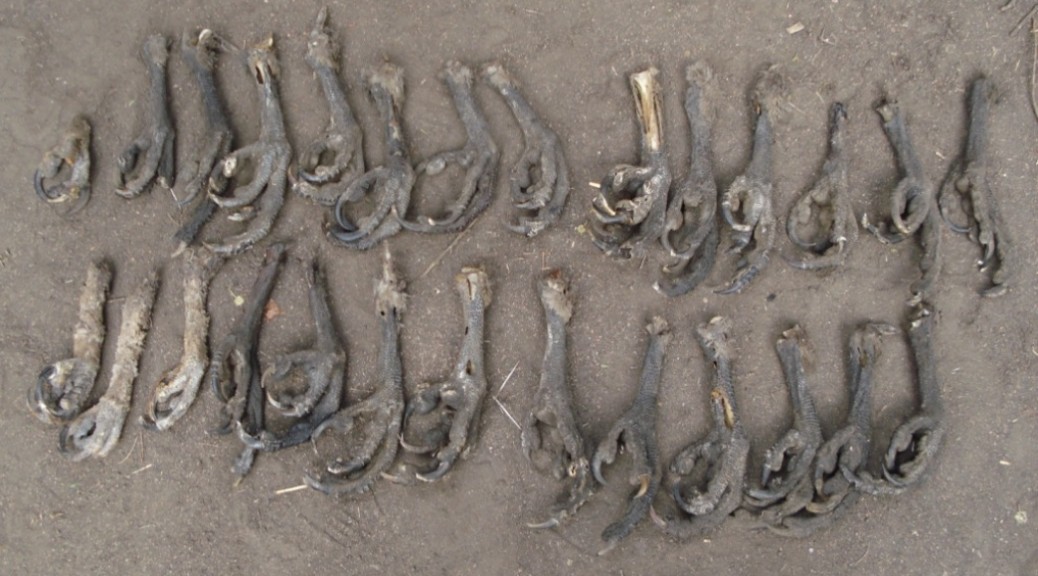Targeted vulture poisoning
Belief-based use and the bushmeat trade
Pesticides are increasingly used to acquire wild animals or their body parts for consumption and commercial trade. Where vultures are concerned, a major driver of this trade is Traditional Medicine, in which wildlife parts and derivatives are used to treat a range of physical and mental diseases, or to bring good fortune. Vultures are sold alongside other species of birds, mammals, reptiles and other taxa at markets specialising in supplying Traditional Medicine.
The traditional medicine trade associated with belief-based use has existed for many years in some areas (especially parts of west, central and southern Africa) and is accepted as cultural practice. However, not all of the uses for vultures have such a history: for example, those uses which supposedly increases a user’s chances of winning in recently introduced national lotteries and sport betting practices. With the rapid growth of human populations and more effective harvesting methods (through highly toxic poisons) the impact on vulture populations is becoming more apparent.
The other main driver of this trade is bushmeat. Many species are sold for their meat in the same markets as those sold for traditional medicine.


